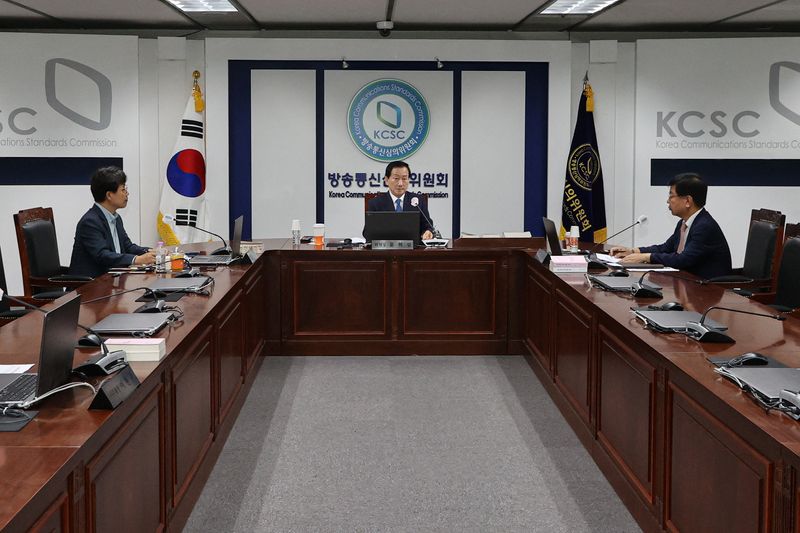By Hyunsu Yim
SEOUL (Reuters) - South Korean regulators and police this week vowed to combat sexually exploitative deepfakes, urging Telegram and other social media companies to cooperate with them as they crack down on the practice.
WHAT HAS CAUSED THE RECENT UPROAR IN SOUTH KOREA?
Several domestic media outlets reported recently that sexually explicit deepfake images and videos of South Korean women were often found in Telegram chatrooms.
Around the same time, South Korean feminist groups and international K-pop fans became more active on social media, calling for action and sharing tips on how to expose such chatrooms.
The outcry also follows the sentencing this month of a man for his involvement in a deepfake pornography case that targeted female students at Seoul National University.
Gender issues are particularly sensitive in South Korea and are debated fiercely across many public forums.
ARE SEXUAL DEEPFAKES MORE PREVALENT IN SOUTH KOREA?
South Korea is the country most targeted by deepfake pornography, with its singers and actresses constituting 53% of the individuals featured in such deepfakes, according to a 2023 report on deepfakes globally by Security Hero, a U.S. startup focused on identity theft protection.
South Korean police say the number of deepfake sex crime cases they have taken on so far this year has surged to 297. That compares to 156 for all of 2021 when data was first collated. Most victims and perpetrators are teenagers, they say.
South Korea has also had to grapple with a series of high-profile digital sex crime cases in recent years, ranging from an online sex blackmail ring to spycam porn.
WHAT ARE AUTHORITIES DOING?
The crackdown on sexual deepfakes by South Korea has coincided with Pavel Durov, Telegram's Russian-born founder, being put under formal investigation in France this week as authorities there probe organized crime on the messaging app.
In addition to urging social media firms to more actively cooperate with the deleting and blocking of such content, South Korea's media regulator has asked French authorities for regular cooperation in Telegram-related problems and facilitating direct communication with Telegram.
Additionally, the South Korean government said on Friday it will push for tougher laws to make the purchase or viewing of sexually exploitative deepfakes a criminal act.
South Korean police are planning a seven-month push to crack down on digital sex crimes. The number of regulatory personnel monitoring such matters will be boosted and a 24-hour hotline for victims will be established.
HOW ARE SOCIAL MEDIA COMPANIES RESPONDING?
Telegram has said in a statement to Reuters it actively moderates harmful content on its platform including illegal pornography.

YouTube this week demonetized a channel with more than one million subscribers owned by a right-wing South Korean YouTuber and removed one of his videos after he downplayed the seriousness of deepfake crimes and mocked women for expressing concern.
It cited violations of the platform's harassment policies and said it was "committed to eradicating digital sex crimes on our platform."